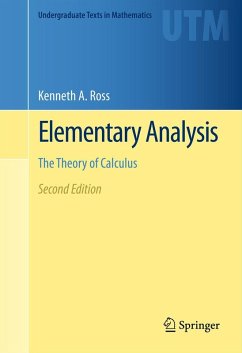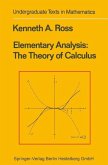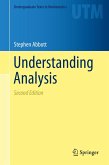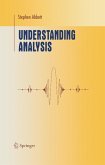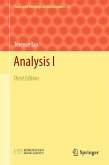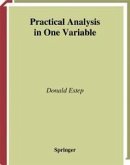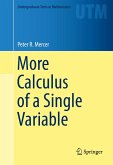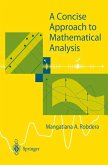The second edition preserves the book's clear and concise style, illuminating discussions, and simple, well-motivated proofs. New topics include material on the irrationality of pi, the Baire category theorem, Newton's method and the secant method, and continuous nowhere-differentiable functions.
Review from the first edition:
"This book is intended for the student who has a good, but naïve, understanding of elementary calculus and now wishes to gain a thorough understanding of a few basic concepts in analysis.... The author has tried to write in an informal but precise style, stressing motivation and methods of proof, and ... has succeeded admirably."
-MATHEMATICAL REVIEWS
Dieser Download kann aus rechtlichen Gründen nur mit Rechnungsadresse in A, B, BG, CY, CZ, D, DK, EW, E, FIN, F, GR, HR, H, IRL, I, LT, L, LR, M, NL, PL, P, R, S, SLO, SK ausgeliefert werden.
"This book is intended for the student who has a good, but naïve, understanding of elementary calculus and now wishes to gain a thorough understanding of a few basic concepts in analysis, such as continuity, convergence of sequences and series of numbers, and convergence of sequences and series of functions. There are many nontrivial examples and exercises, which illuminate and extend the material. The author has tried to write in an informal but precise style, stressing motivation and methods of proof, and, in this reviewer's opinion, has succeeded admirably." -- MATHEMATICAL REVIEWS
"This book occupies a niche between a calculus course and a full-blown real analysis course. ... I think the book should be viewed as a text for a bridge or transition course that happens to be about analysis ... . Lots of counterexamples. Most calculus books get the proof of the chain rule wrong, and Ross not only gives a correct proof but gives an example where the common mis-proof fails." -- Allen Stenger (The Mathematical Association of America, June, 2008)

